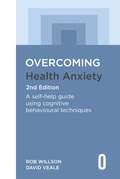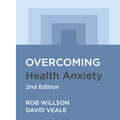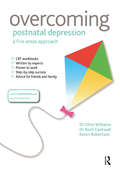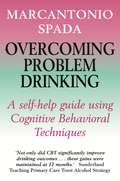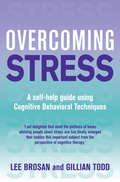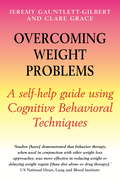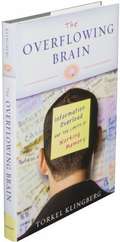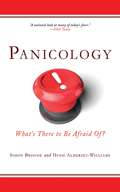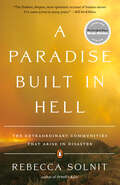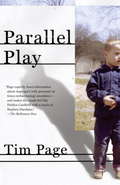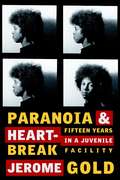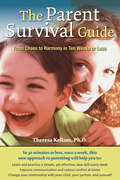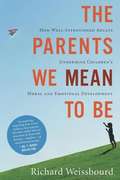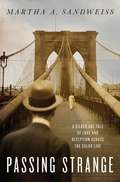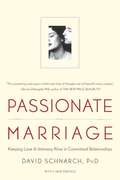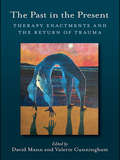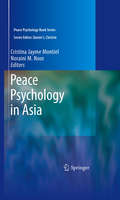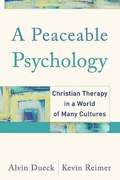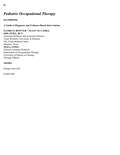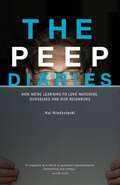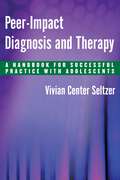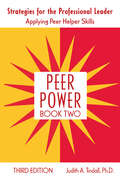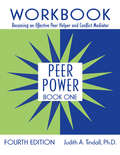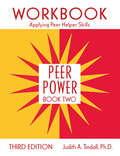- Table View
- List View
Overcoming Health Anxiety 2nd Edition: A self-help guide using cognitive behavioural techniques (Overcoming Books)
by Rob Willson David VealeHow you can stop worrying about your health and enjoy life'This book not only helps sufferers to better understand the nature of the problem, but also provides them with the skills necessary to overcome it and to regain quality of life'Professor Paul Salkovskis, Professor of Experimental Psychology, University of OxfordMany of us have a tendency to worry unnecessarily about our health. For some the anxiety becomes severe and persistent. This can involve spending many hours checking for symptoms, seeking reassurance from others, surfing the internet for information about different diseases, or repeatedly visiting the doctor. It is distressing for them and for everyone around them.In fact, health anxiety can be very successfully treated with cognitive behavioural therapy (CBT) - the approach taken in this self-help guide. Using a structured, step-by-step approach the authors explain how the problem develops, how to recognise what feeds it and how to develop effective methods of dealing with it. This book includes:- Questionnaires, case studies and exercises- Chapters on fear of death and on medicationOvercoming self-help guides use clinically proven techniques to treat long-standing and disabling conditions, boith psychological and physical.READING WELLThis book is recommended by the national Reading Well scheme for England and Wales delivered by The Reading Agency and the Society of Chief Librarians with funding from Arts Council England and Wellcome.www.reading-well.org.ukSeries Editor: Emeritus Professor Peter Cooper
Overcoming Health Anxiety 2nd Edition: A self-help guide using cognitive behavioural techniques (Overcoming Books)
by Rob Willson David VealeHow you can stop worrying about your health and enjoy life'This book not only helps sufferers to better understand the nature of the problem, but also provides them with the skills necessary to overcome it and to regain quality of life'Professor Paul Salkovskis, Professor of Experimental Psychology, University of OxfordMany of us have a tendency to worry unnecessarily about our health. For some the anxiety becomes severe and persistent. This can involve spending many hours checking for symptoms, seeking reassurance from others, surfing the internet for information about different diseases, or repeatedly visiting the doctor. It is distressing for them and for everyone around them.In fact, health anxiety can be very successfully treated with cognitive behavioural therapy (CBT) - the approach taken in this self-help guide. Using a structured, step-by-step approach the authors explain how the problem develops, how to recognise what feeds it and how to develop effective methods of dealing with it. This book includes:- Questionnaires, case studies and exercises- Chapters on fear of death and on medicationOvercoming self-help guides use clinically proven techniques to treat long-standing and disabling conditions, boith psychological and physical.READING WELLThis book is recommended by the national Reading Well scheme for England and Wales delivered by The Reading Agency and the Society of Chief Librarians with funding from Arts Council England and Wellcome.www.reading-well.org.ukSeries Editor: Emeritus Professor Peter Cooper
Overcoming Postnatal Depression: A Five Areas Approach
by Christopher Williams Roch Cantwell Karen RobertsonOvercoming Postnatal Depression uses the proven and trusted five areas model of cognitive behavioural therapy (CBT). By bringing together specialists in postnatal depression and with the use of self-help resources, this book addresses all the common challenges faced by women during times of low mood after having had a baby. CBT workbooks—easy to use, practical, photocopy them for use in your own life or job Written by award-winning authors and experts Proven to work—through years of research and practice Step-by-step success—follow the plan, see positive results Advice for friends and family—offers support Invaluable, proven, practical, and easy-to-use workbooks for all CBT practitioners, psychiatrists, GPs, psychologists, neurologists, physiotherapists, occupational therapists, and healthcare workers to use to help the people in their care help themselves.A linked free online support course is located at www.livinglifetothefull.com with additional resources at www.fiveareas.com
Overcoming Problem Drinking
by Marcantonio SpadaUp to a quarter of the UK population is currently believed to misuse alcohol. This first self-help book aimed specifically at problem drinking uses an approach based on real clinical practice, first to recognize alcohol misuse and then, using proven Cognitive Behavioural Therapy (CBT) techniques, to show the drinker how to turn the tables and regain control of alcohol consumption. For anyone who feels alcohol is beginning to rule their lives, this is an indispensable guide, combining the expertise of psychologists and those working in the medical profession. It also shows how to enlist the help of friends and family.
Overcoming Stress
by Lee Brosan Gillian ToddOvercoming app now available via iTunes and the Google Play Store.'An excellent book filled with practical tips for understanding and managing stress.' Professor David M. Clark, Professor and Chair of Experimental Psychology, University of OxfordMost of us know what it is like to feel stressed - so much so, in fact, that we take it for granted that we are going to feel stressed and assume that there's not much to be done about it. Too much stress can disrupt our lives almost without our realizing it. However there is a tried and tested approach to coping using cognitive behavioural therapy (CBT). In this easy-to-use self-help guide the authors help you to recognize what happens when under stress and how to change how you think, feel and act so that you learn to retain a balanced outlook on life and manage it more effectively too.· Provides a complete CBT self-help course with case studies and step-by-step explanations· Shows how to permanently improve your overall quality of life by changing the ways you respond to stressOvercoming self-help guides use clinically proven techniques to treat long-standing and disabling conditions, both psychological and physical. Many guides in the Overcoming series are recommended under the Reading Well Books on Prescription scheme.Series Editor: Professor Peter Cooper
Overcoming Weight Problems
by Clare Grace Jeremy Gauntlett-GilbertFrom their ground-breaking work with CBT techniques in London's only NHS clinic for obesity, Drs Jeremy Gauntlett-Gilbert and Clare Grace have developed this accessible self-help guide, based on clinically tested methods that will help change thinking and overcome weight problems once and for all. How to:- - Develop real motivation to change - Deal with negative patterns of thinking and blocks and understand why you have gained weight and can't shift it - Develop a healthy and sustainable eating plan and understand why quick-fix diets are not the answer- Bring more activity into life over the long term - Handle difficult emotions and physical feelings
Overcoming Weight Problems
by Clare Grace Jeremy Gauntlett-GilbertFrom their ground-breaking work with CBT techniques in London's only NHS clinic for obesity, Drs Jeremy Gauntlett-Gilbert and Clare Grace have developed this accessible self-help guide, based on clinically tested methods that will help change thinking and overcome weight problems once and for all. How to:- - Develop real motivation to change - Deal with negative patterns of thinking and blocks and understand why you have gained weight and can't shift it - Develop a healthy and sustainable eating plan and understand why quick-fix diets are not the answer- Bring more activity into life over the long term - Handle difficult emotions and physical feelings
The Overflowing Brain
by Torkel Klingberg Elkhonon GoldbergAs the pace of technological change accelerates, we are increasingly experiencing a state of information overload. Statistics show that we are interrupted every three minutes during the course of the work day. Multitasking between email, cell-phone, text messages, and four or five websites while listening to an iPod forces the brain to process more and more informaton at greater and greater speeds. And yet the human brain has hardly changed in the last 40,000 years. Are all these high-tech advances overtaxing our Stone Age brains or is the constant flood of information good for us, giving our brains the daily exercise they seem to crave? In The Overflowing Brain, cognitive scientist Torkel Klingberg takes us on a journey into the limits and possibilities of the brain. He suggests that we should acknowledge and embrace our desire for information and mental challenges, but try to find a balance between demand and capacity. Klingberg explores the cognitive demands, or "complexity," of everyday life and how the brain tries to meet them. He identifies different types of attention, such as stimulus-driven and controlled attention, but focuses chiefly on "working memory," our capacity to keep information in mind for short periods of time. Dr Klingberg asserts that working memory capacity, long thought to be static and hardwired in the brain, can be improved by training, and that the increasing demands on working memory may actually have a constructive effect: as demands on the human brain increase, so does its capacity. The book ends with a discussion of the future of brain development and how we can best handle information overload in our everyday lives. Klingberg suggests how we might find a balance between demand and capacity and move from feeling overwhelmed to deeply engaged.
Panicology: Two Statisticians Explain What's Worth Worrying About (and What's Not) in the 21st Century
by Hugh Aldersey-Williams Simon BriscoeAre you afraid you might succumb to bird flu? Worried that a life of poverty awaits you in old age? Concerned that you might not be having as much sex as the French? Anxious that our planet is under threat from climate change or a collision with an asteroid? If any, or all, of these things worry you, you're not alone. Anxiety is a part of modern life. But why? We're living longer, safer, and healthier lives than at any time in human history. So what is there to worry about? In this witty and revealing book, Simon Briscoe and Hugh Aldersey-Williams strip away the hysteria that surrounds over forty of today's most common scare stories, from overpopulation and murder rates to fish shortages and obesity levels, and show the extraordinary extent to which statistics are manipulated or misrepresented by vested interests and the media, eager to exploit our fears. And most importantly they offer a toolkit for skepticism-ways of helping readers sort out what really is worth panicking about from the stuff that really isn't.
A Paradise Built in Hell: The Extraordinary Communities That Arise in Disaster
by Rebecca Solnit"The freshest, deepest, most optimistic account of human nature I've come across in years. " -Bill McKibben The most startling thing about disasters, according to award-winning author Rebecca Solnit, is not merely that so many people rise to the occasion, but that they do so with joy. That joy reveals an ordinarily unmet yearning for community, purposefulness, and meaningful work that disaster often provides. A Paradise Built in Hell is an investigation of the moments of altruism, resourcefulness, and generosity that arise amid disaster's grief and disruption and considers their implications for everyday life. It points to a new vision of what society could become-one that is less authoritarian and fearful, more collaborative and local. .
Parallel Play: Growing Up with Undiagnosed Asperger's
by Tim PageIn this captivating memoir, Pulitzer Prize-winner Page writes about growing up gifted and unknowingly suffering from Asperger's syndrome, expanding on a tremendously popular essay he wrote for "The New Yorker. "
Paranoia & Heartbreak: Fifteen Years in a Juvenile Facility
by Jerome GoldFor fifteen years, Jerome Gold worked as a rehabilitation counselor in a prison for juveniles in Washington state. Throughout his time there, he kept a journal of his experiences with youths who had been incarcerated for murder, kidnap, assault, rape and other sex offenses, auto theft, burglary, and selling drugs. What started as a journal designed to relieve stress turned into the evocation of one man's nuanced perspective on a unique group of young people. Paranoia & Heartbreak tells Gold's personal story of coming to terms with people who have crossed over to the other side of their own humanity. Writing from ample experience and with unflinching compassion, Gold brings the reader to see these "deviants"--and through them, in some slanted way, our whole society, with an unexpected intensity.
The Parent Survival Guide: From Chaos to Harmony in Ten Weeks or Less
by Theresa KellamWhen parents turn to the parenting/self-help section of their local bookstore, they are looking for both practical guidance and a childrearing philosophy that resonates with them - an approach they can relate to and be comfortable implementing in their own household. In The Parent Survival Guide: From Chaos to Harmony in Ten Weeks or Less, Theresa Kellam presents a way to strengthen the relationship with the child that simultaneously promotes the parent's own emotional healing and wellness. Grounded in a research-supported therapeutic technique that uses structured play time as the catalyst for interpersonal connection and growth, Kellam's model is subtle in its simplicity. Through a series of guided exercises, Kellam gives parents the skills they need to begin to set aside special playtimes with their children, during which the most important part of the process is simply "being there" in a way that promotes healing, growth, and communication. The beauty of this approach is that in only 30 minutes, once a week, the results can be seen in only a few weeks. Features of the book include: "Parent Survival Tip" at the start of each chapter Original cartoon illustrations bring text to life Short but insightful workseet questions bring focus to the program The Parent Survival Guide is structured over a series of 10 chapters, which can be read in conjunction with the 10-sessions of the CPRT workshops for those parents enrolled in a formal filial training program. But the material in the book is designed to be read and implemented by anyone. The author is not only a licensed psychologist and filial therapist, but she has also gone through the program with her own son and continues to rely on its principles within her family.
The Parents We Mean to Be
by Richard WeissbourdHarvard psychologist RichardWeissbourd argues incisively that parents--not peers, not television--are the primary shapers of their children's moral lives. And yet, it is parents' lack of self-awareness and confused priorities that are dangerously undermining children's development.Through the author's own original field research, including hundreds of rich, revealing conversations with children, parents, teachers, and coaches, a surprising picture emerges.Parents' intense focus on their children's happiness is turning many children into self-involved, fragile conformists.The suddenly widespread desire of parents to be closer to their children--a heartening trend in many ways--often undercuts kids'morality.Our fixation with being great parents--and our need for our children to reflect that greatness--can actually make them feel ashamed for failing to measure up. Finally, parents' interactions with coaches and teachers--and coaches' and teachers' interactions with children--are critical arenas for nurturing, or eroding, children's moral lives.Weissbourd's ultimately compassionate message--based on compelling new research--is that the intense, crisis-filled, and profoundly joyous process of raising a child can be a powerful force for our own moral development.
Passing Strange: A Gilded Age Tale of Love and Deception Across the Color Line
by Martha A. Sandweiss"Passing Strange" is a uniquely American biography of Clarence King, who hid a secret from his Gilded Age cohorts and prominent family: for 13 years he lived a double life--as the celebrated white explorer, geologist, and writer King and as a black Pullman porter and steelworker named James Todd.
Passionate Marriage: Keeping Love and Intimacy Alive in Committed Relationships
by David SchnarchPassionate Marriage has long been recognized as the pioneering book on intimate human relationships. Now with a new preface by the author, this updated edition explores the ways we can keep passion alive and even reach the height of sexual and emotional fulfillment later in life. Acclaimed psychologist David Schnarch guides couples toward greater intimacy with proven techniques developed in his clinical practice and worldwide workshops. Chapters--covering everything from understanding love relationships to helpful "tools for connections" to keeping the sparks alive years down the road--provide the scaffolding for overcoming sexual and emotional problems. This inspirational book is sure to help couples invigorate their relationships and reach the fullest potential in their love lives.
The Past in the Present: Therapy Enactments and the Return of Trauma
by David Mann Valerie CunninghamThe Past in the Present brings together, for the first time, contemporary ideas from both the psychoanalytic and humanistic therapy traditions, looking at how trauma and enactments affect therapeutic practice. Enactments are often experienced as a crisis in therapy and are understood as symbolic interactions between the client and therapist, where personal issues of both parties become unconsciously entwined. This is arguably especially true if the client has undergone some form of trauma. This trauma becomes enacted in the therapy and becomes a turning point that significantly influences the course of therapy, sometimes with creative or even destructive effect. Using a wealth of clinical material throughout, the contributors show how therapists from different therapeutic orientations are thinking about and working with enactments in therapy, how trauma enactment can affect the therapeutic relationship and how both therapist and client can use it to positive effect. The Past in the Present will be invaluable to practitioners and students of analytic and humanistic psychotherapy, psychoanalysis, analytic psychology and counselling.
Peace Psychology in Asia
by Noraini M. Noor Cristina Jayme MontielIn recent years, peace psychology has grown from a utopian idea to a means of transforming societies worldwide. Yet at the same time peacebuilding enjoys global appeal, the diversity of nations and regions demands interventions reflecting local cultures and realities. Peace Psychology in Asia shows this process in action, emphasizing concepts and methods diverging from those common to the US and Europe. Using examples from China, India, Indonesia, the Philippines, and elsewhere in the region, chapter authors illuminate the complex social, political, and religious conditions that have fostered war, colonialism, dictatorships, and ethnic strife, and the equally intricate personal and collective psychologies that need to be developed to encourage reconciliation, forgiveness, justice, and community. Peace Psychology in Asia: Integrates psychology, history, political science, and local culture into concepts of peace and reconciliation. Highlights the indigenous aspects of peace psychology. Explains the critical relevance of local culture and history in peace work. Blends innovative theoretical material with empirical evidence supporting peace interventions. Balances its coverage among local, national, regional, and global contexts. Analyzes the potential of Asia as a model for world peace. As practice-driven as it is intellectually stimulating, Peace Psychology in Asia is vital reading for social and community psychologists, policy analysts, and researchers in psychology and sociology and international studies, including those looking to the region for ideas on peace work in non-Western countries.
A Peaceable Psychology: Christian Therapy in a World of Many Cultures
by Alvin Dueck Kevin ReimerIn the past century psychology has been practiced in the manner of medical science, working from the assumption that therapy can transcend particular traditions. Seeking to move the conversation forward, Alvin Dueck and Kevin Reimer argue for a theologically, culturally, and politically sensitive psychotherapy whereby the Christian psychologist treats the patient according to the particulars of the patient's political situation and ethnic and religious tradition, while acknowledging the role of his or her own Christian story in therapeutic dialogue. A Peaceable Psychology encourages mental health practitioners to mine their own traditions for gifts of healing and to allow clients to bring their native ethnic or religious voice into therapy. The authors point to the life of Jesus as the foundation on which to build a therapeutic ethic, appropriating the story of his life to bring healing. This integrative work considers philosophy, ethics, theology, and cognitive science in making an argument on behalf of and for the psychological community. It will benefit psychology professors and students, Christian psychologists and psychotherapists, mental health workers, pastors, and theologians.
Pediatric Occupational Therapy Handbook: A Guide to Diagnoses and Evidence-based Interventions
by Patricia Bowyer Susan M. CahillCombining essential assessment guidance with the latest evidence-based intervention strategies, this compact reference helps you quickly locate the information you need to evaluate and manage pediatric disorders. <p><p>Access diagnosis-specific information on epidemiology, precautions, and more, as well as suggested interventions supported by the latest research, all in a convenient, pocket-sized handbook perfect for the busy clinical setting. Information is presented in a consistent format for easy reference and complies with the OT Practice Framework to help you ensure the most effective therapeutic outcomes.
The Peep Diaries
by Hal Niedzviecki"Take a peek at The Peep Diaries, an erudite (but not too erudite) look at the culture that Facebook, Twitter, et al. have spawned."--Real Simple "It's a great read; it mixes frank interviews with people pushing the boundaries of voyeurism and exhibitionism, alongside a bracing critique of the social context that got us into peep culture and the forces that now exploit our participation in it."--The Globe and Mail We have entered the age of "peep culture": a tell-all, show-all, know-all digital phenomenon that is dramatically altering notions of privacy, individuality, security, and even humanity. Peep culture is reality TV, YouTube, MySpace, Facebook, Twitter, over-the-counter spy gear, blogs, chat rooms, amateur porn, surveillance technology, Dr. Phil, Borat, cell phone photos of your drunk friend making out with her ex-boyfriend, and more. In the age of peep, core values and rights we once took for granted are rapidly being renegotiated, often without our even noticing. With hilarious, exasperated acuity, social critic Hal Niedzviecki dives into peep, starting his own video blog, joining every social network that will have him, monitoring the movements of his toddler, selling his secrets on Craigslist, hiring a private detective to investigate him, spying on his neighbors, trying out for reality TV shows, and stripping for the pleasure of a web audience he isn't even sure exists. Part travelogue, part diary, part meditation and social history, The Peep Diaries explores a rapidly emerging digital phenomenon that is radically changing not just the entertainment landscape, but also the firmaments of our culture and society. The Peep Diaries introduces the arrival of the age of peep culture and explores its implications for entertainment, society, sex, politics, and everyday life. Mixing first-rate reporting with sociological observations culled from the latest research, this book captures the shift from pop to peep and the way technology is turning gossip into documentary and Peeping Toms into entertainment journalists. Packed with stranger-than-fiction true-life characters and scenarios, The Peep Diaries reflects the aspirations and confusions of the growing number of people willing to trade the details of their private lives for catharsis, attention, and notoriety. Hal Niedzviecki is the editor of Broken Pencil magazine and has published numerous works of social commentary and fiction, including Hello I'm Special: How Individuality Became the New Conformity.
Peer-Impact Diagnosis and Therapy: A Handbook for Successful Practice with Adolescents
by Vivian Center SeltzerAdolescents are infamous for their rebellious behavior. Indeed,much of the focus of therapy and clinical intervention with troubled adolescents focuses on their presumed need to rebel against their parents as they define their own identities. Yet psychologist Vivian Center Seltzer argues that approaching work with adolescent clients with this presumption in mind is likely to miss the roots of their problem behavior.Rather than acting out against parental authority, adolescents in need of clinical help are most often dealing with their disappointing comparisons with their peers--the most relevant others to them during this period of their development. Seltzer explains that it is countless interactions with their peers, at school and elsewhere outside of the home, that are the primary mode of psychological and social development for adolescents. Practitioners must recognize this crucial influence, and perhaps forgo traditional approaches, in order to better work with their adolescent clients.Peer-Impact Diagnosis and Therapy is a practical professional guide for how to approach and aid troubled teens by accessing the wealth of insight to be gained from understanding the influence of peer interactions on development and on behavior. Full of diagnostic categories and protocols for use with all types of adolescents, as well as guidance, tips, case studies, and offering a targeted model for adolescent group therapy, Seltzer provides professionals with all the tools they need to assist teens on their road to adulthood.
Peer Power: Workbook: Applying Peer Helper Skills
by Judith A. TindallThe Peer Power Program is a peer training program designed for middle, high school, and higher education students, focusing on 8 core skills: Attending, Empathizing, Summarizing, Questioning, Genuineness, Assertiveness, Confrontation, and Problem Solving. Through a series of exercises, games, and self-awareness techniques, youth and adults involved in the program can gain the basic communication and mediation skills necessary to effectively help their peers. The professional strategies book provides the program leader/facilitator with clear and easy to follow guidelines for implementing the Peer Power Program. Picking up where Book One left off, the leader's guide to Book Two proceeds through the same series of Modules that are found in the Book Two Student Workbook. For each exercise in the student Workbook, this leader's guide provides instructions for introducing and implementing the exercise, time and material requirements, description of its purpose and goal, and application assignments. Equipped with the professional strategies book, the program leader (teacher, school counselor, juvenile center officer, mental health professional, and human resource professional) can quickly and confidently work through the Peer Power curriculum.
Peer Power, Book One: Workbook: Becoming an Effective Peer Helper and Conflict Mediator
by Judith A. TindallThe Peer Power Program is a peer training program designed for middle, high school, and higher education students, focusing on 8 core skills: Attending, Empathizing, Summarizing, Questioning, Genuineness, Assertiveness, Confrontation, and Problem Solving. Through a series of exercises, games, and self-awareness techniques, youth and adults involved in the program can gain the basic communication and mediation skills necessary to effectively help their peers. Peer Power, Book One, Workbook brings the participating students through first of all understanding their role as a peer helper, understanding themselves based on much of the Myers Briggs Type Indicator and the Asset Building Model. Next, it takes the participant through eight core skills. The last part of the book indicates strategies for implementing peer work into practice. These strategies include limits setting through ethical guidelines, taking care of themselves, conflict resolving skills and putting peer helping into action. The Workbook provides clear instructions for the skills-focused, guided exercises, in a format that is accessible and enjoyable for students in the Peer Power Program.
Peer Power, Book Two: Workbook: Applying Peer Helper Skills (Routledge Series On Family Therapy And Counseling Ser.)
by Judith A. TindallThe Peer Power Program is a peer training program designed for middle, high school, and higher education students, focusing on 8 core skills: Attending, Empathizing, Summarizing, Questioning, Genuineness, Assertiveness, Confrontation, and Problem Solving. Through a series of exercises, games, and self-awareness techniques, youth and adults involved in the program can gain the basic communication and mediation skills necessary to effectively help their peers. Picking up where Book One left off, the Peer Power, Book Two: Workbook brings the participating students through a series of Modules, focusing on how to apply the core skills learned in the first half of the program in real life situations. This volume covers topics such as drugs and alcohol abuse, taking care of you through stress management, leadership training, tutoring, group work, enhancing sexual health, disordered eating, suicide prevention, coping with loss, highway traffic safety, bullying reduction, mentoring, crisis management, character education, problem gambling prevention, and tobacco prevention.
